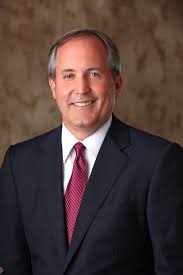 AUSTIN – Attorney General Ken Paxton, along with a bipartisan group of 46 fellow attorneys general, urged congressional leaders in Washington to amend the Communications Decency Act of 1996 to make certain that state and local authorities have the authority to investigate and prosecute criminal activity online.
AUSTIN – Attorney General Ken Paxton, along with a bipartisan group of 46 fellow attorneys general, urged congressional leaders in Washington to amend the Communications Decency Act of 1996 to make certain that state and local authorities have the authority to investigate and prosecute criminal activity online.
Congress did amend the Communications Decency Act last year, passing the Stop Enabling Sex Traffickers Act and the Allow States and Victims to Fight Online Sex Trafficking Act (known as FOSTA-SESTA). Among other things, the measures provide state prosecutors greater authority to take legal action against websites that host sex-trafficking ads, and make it easier for trafficking victims to file lawsuits.
In today’s letter to congressional leaders, Attorney General Paxton and his counterparts applauded the passage of FOSTA-SESTA, but noted that criminal activity online does not stop at sex trafficking. They urged support for another amendment to the Communications Decency Act, which this time would allow the states to enforce their criminal laws against companies that provide platforms for such illegal activities as online black market opioid sales, ID theft and election meddling.
“Addressing criminal activity cannot be relegated to federal enforcement alone simply because the activity occurs online,” Attorney General Paxton wrote. “The authorities in our states must be allowed to address these crimes themselves and fulfill our primary mandate to protect our citizens and enforce their rights.”
Some federal court opinions have interpreted the Communications Decency Act so broadly that the perverse result has been to protect individuals and services that knowingly aid and profit from illegal activity online at the expense of the victims for whom the protection was intended.
“In its passage of FOSTA-SESTA, Congress understood that the immense challenges presented by sex trafficking on the internet must be shared by federal and state authorities,” the letter stated. “The increasing challenges presented by profiteers of the many other criminal enterprises online require the same level of investigation and prosecution that can only come from state and local resources.”
The letter was sent to Chairman Jerrold Nadler and Ranking Member Doug Collins of the House Committee on the Judiciary, Chairman Lindsey Graham and Ranking Member Dianne Feinstein of the Senate Committee on the Judiciary, Chairman Frank Pallone, Jr. and Ranking Member Greg Walden of the House Committee on Energy, and Chairman Roger Wicker and Ranking Member Maria Cantwell of the Senate Committee on Commerce, Science, and Transportation.
View a copy of the letter here.

